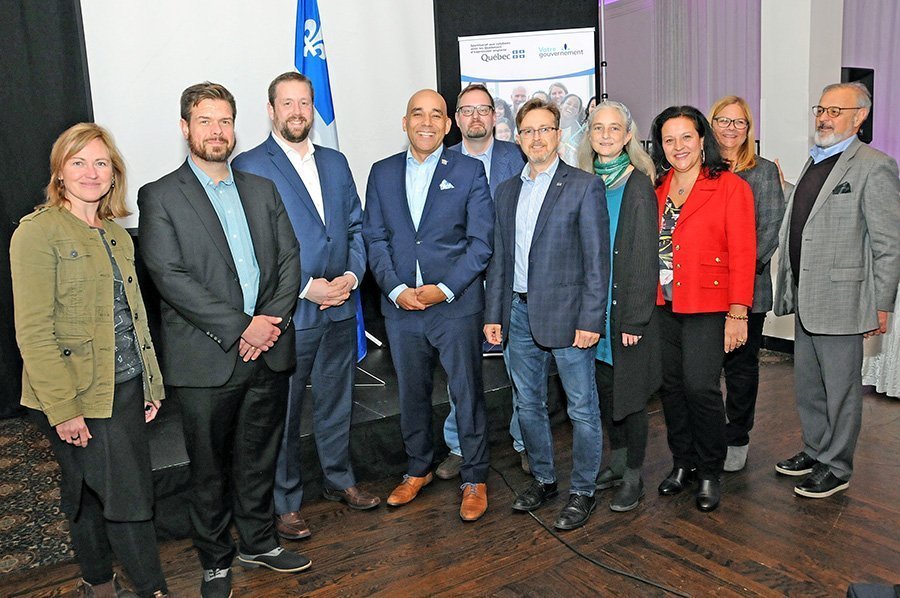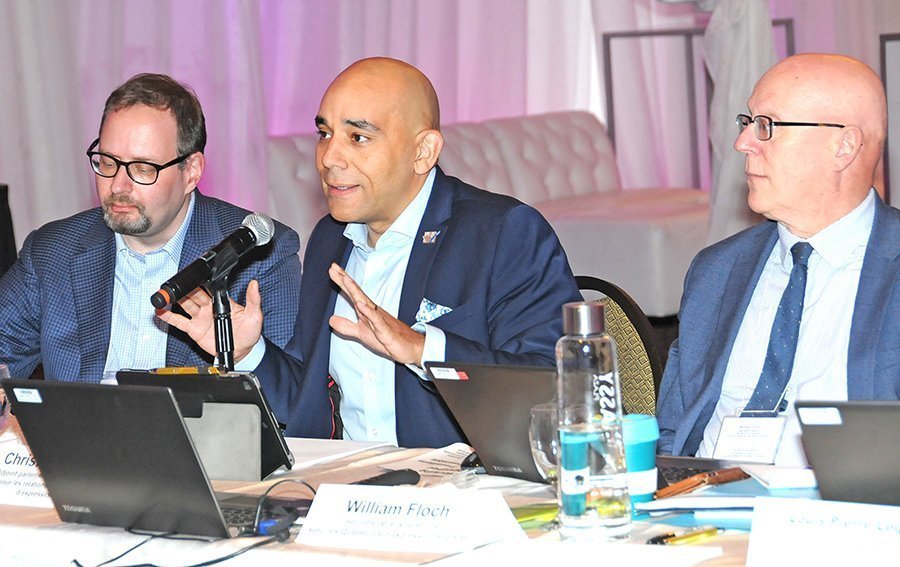
Martin C. Barry
Anglo group leaders from the Laval, Laurentian and Lanaudière regions who took part last week in a consultation in Laval by the CAQ government’s secretariat for English-speaking Quebecers say they were pleased overall by the experience, although some remained uncertain where the process is leading.
Anglo relations secretariat
Led by Sainte-Rose CAQ MNA Christopher Skeete, who is the only Anglophone MNA in the CAQ government, the Secretariat aux relations avec les Québécois d’expression anglaise was set up in 2017 by the previous Liberal government.
The Secretariat was established to ensure “that the concerns of English-Speaking Quebecers are taken into account in government orientations and decisions,” the SRQEAC said in a statement following its creation.
At the conclusion of last week’s Laval consultation, Skeete was asked by the Laval News whether he was hearing anything from the Anglo group leaders here that was different from the other regions in Quebec he’s visited.
Anglos’ overlapping realities
“You would think that there would be huge differences,” he said. “But a lot of the realities of English-speaking Quebecers tend to overlap. But here’s an instance of one thing that we keep hearing over and over: the access or the ability to communicate in French.
“A lot of groups are telling us that when they want to interact with the province, they’re not able to do that because their French level is not high enough, so they can’t apply for grants. They can’t apply for programs in a way that they would like to because they feel like their French is not sufficient to get in the door.

Ensuring equality, says Skeete
“So that for me is a big deal, right?” added Skeete. “If you can’t get access to government programs that you’re paying for with your taxes then for me you’re not an equal citizen. For me it’s all about making sure that English-speaking Quebecers are equal and full-fledged citizens.”
As for what will eventually come following the eight consultation hearings, Skeete said the data will be condensed into a report that will be presented to the stakeholders for validation.
“And from there we’re going to develop a strategy that’s going to bring us forward in time,” said Skeete. “And I’m hoping that with that strategy we’ll be able to better orient the help that we bring to the community and bridge some of the gaps that exist in accessing government programs.”
Participants overall pleased
The Laval News approached some of the community leaders who took part in last week’s consultation for their reactions. “I think it’s great that these consultations are happening,” said Sir Wilfrid Laurier School Board chairman Paolo Galati who was accompanied by SWLSB director-general Gaëlle Absolonne.
“I think the dialogue needs to be a little more fluid between the Anglophones and the Quebec government, so this is a great initiative. We’ll see what it brings forward – what happens from what was said today.”
Impact on student enrollment
Galati said that one of the issues raised by the school board was the impact of Bill 101 on the SLWSB’s student enrollment.
“Every year we lose about 40 students based on their eligibility criteria,” he said, referring to conditions established by the province’s language legislation which restrict who gets to attend English schools.
While acknowledging that the SWLSB has actually been gaining in student enrollment in recent years, he added, “If we would be able to open up discussions regarding Bill 101 we would have an opportunity to grow even more.”

But will it continue?
Michael Canuel, executive-director of the Laval-based Leading English Education and Resource Network (LEARN), said it wasn’t the first time they had met with Skeete, but were generally happy with the results. “We’re fairly pleased with his participation, interest and involvement in what we do,” he said.
All the same, Canuel expressed some concern as to whether the Secretariat’s efforts on behalf of the English-speaking community will continue. “Our primary concern is that there’s some continuity to all of this – that it’s not just a one-off,” he said. “We do hope that there is follow-up.”
Kevin McLeod, executive-director of the Chomedey-based Agape social services association, also was pleased that the provincial government was showing enough interest to inquire about the needs of Laval’s English-speaking community.
Bill 101 and health-care
“The fact they are doing a consultation does show their interest in how they can improve services for English-speakers,” said McLeod, who also raised issues during the meeting.
Among these, he said, are constraints being enforced under Bill 101 which prevent some English-language health-related information from being posted in public areas at hospitals and other health-care establishments.
“How are we supposed to inform people?” said McLeod, suggesting the new CAQ government is cracking down with clauses of Bill 101 that were ignored for years. “My fear is that they’re going to stop printing and translating documentation since we’re not allowed to have it available on the walls,” he said.



